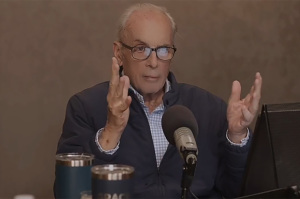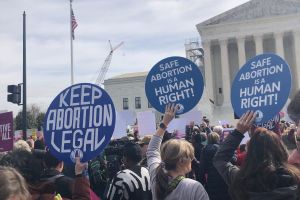Did Rick Perry Create the 'Texas Miracle'?
With unemployment currently above nine percent, Texas' record of job creation would seem to be the most impressive part of Governor Rick Perry's record. Perry's critics argue, however, that Perry has nothing to brag about.
One million jobs have been created in Texas during Perry's 10-year tenure, plus four out of 10 of all the jobs created in the United States since 2009 were created in Texas. Perry credits this “Texas miracle” to low government regulation and low taxes.
Perry's critics do not dispute the numbers, but they argue that Perry's job growth numbers are nothing to brag about for four reasons.
First, much of the growth in jobs has come from public sector jobs, which is tied to population growth, not the private sector jobs touted by Perry. With the rapid rise in population, local governments have had to hire more public sectors employees, such as teachers, police officers and public sanitation workers to serve the needs of all the new communities cropping up in Texas.
Second, some of the job growth has come from high gas prices that benefit the oil and gas industry in Texas. Perry, obviously, does not deserve credit for high gas prices or the fact that Texas has a lot of oil and gas.
Third, some of those jobs were created with the federal stimulus bill, of which Perry has been critical. If the jobs were created by government action, rather than by less government involvement, Perry's argument for smaller government is undermined.
And fourth, after accounting for oil and gas industry jobs and public sector jobs, much of the rest of the job growth comes from minimum wage jobs, so Perry has not helped create “good jobs.”
Perry's defenders, on the other hand, counter with several points.
First, they ask, why is Texas' population booming? Unlike Perry's detractors, his supporters argue that the population growth is exactly the point. People are moving to Texas exactly because of Perry's pro-growth policies, and, of course, public sector employment would need to keep pace with the population growth. Plus, public sector employment is not out of proportion to the population growth.
Second, a closer look at the data shows that Texas has not added minimum wage jobs at a faster rate than other states. In fact, wages in Texas have grown the 6th fastest in the nation.
Third, every state received stimulus funds. Stimulus funds, therefore, cannot explain why Texas created more jobs than California and New York, both of which received more stimulus money than Texas.
Fourth, while Texas benefits from its natural resources, it is the low regulation, low tax environment that keeps oil and gas industries in Texas successful, it is argued.
Another argument that Perry's critics could make, but rarely do, however, is that Perry deserves little credit for the “Texas miracle.”
The Washington Post points out, for instance, that Texas was protected from the housing bubble because home mortgages were more tightly regulated in Texas than elsewhere. More regulation, therefore, helped the economy in this instance, and Texas agencies, not Perry, were responsible for these regulations.
A spokesperson for the Perry campaign countered that argument by saying, “Governor Perry is not against all regulations. He is against regulations that kill jobs and harm the economy.”
Ross Douthat, a conservative, also makes the point that Perry deserves little credit for the “Texas miracle” in a column for The New York Times: “When Perry became governor, taxes were already low, regulations were light, and test scores were on their way up. He didn’t create the zoning rules that keep Texas real estate affordable, or the strict lending requirements that minimized the state’s housing bubble. Overall, the Texas model looks like something he inherited rather than a system he built.”
Perhaps liberals have not made a similar argument because it would require some acknowledgment that Texas' low tax and low regulatory environment has contributed, in part, to its growth in jobs and population.
On the Web:http://www.politicalmathblog.com/?p=1590
http://www.nytimes.com/2011/08/22/opinion/messing-with-texas.html
http://www.npr.org/2011/08/15/139652124/why-has-texas-seen-a-rise-in-new-jobs





























